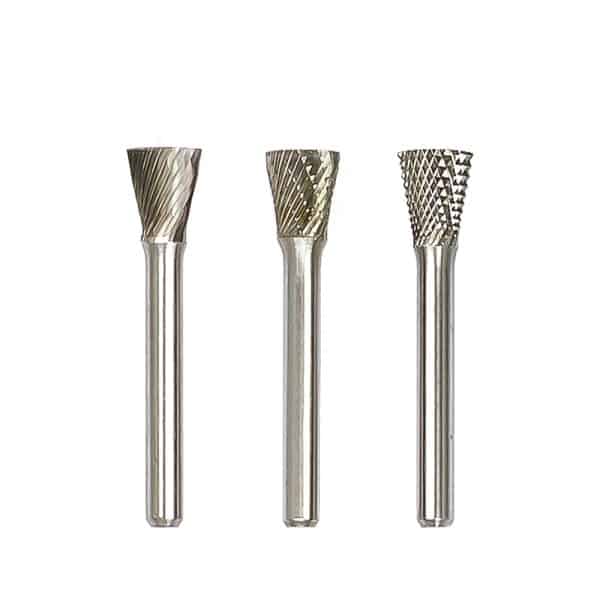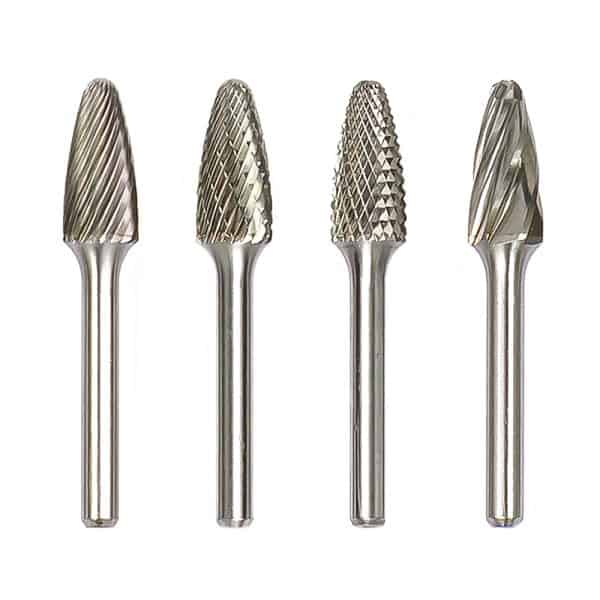slot end mill Factories
Navigating the world of slot end mill factories can be complex. This guide simplifies the process by outlining key factors to consider when selecting a supplier, including material selection, precision manufacturing, quality control, and application-specific features. We also explore leading manufacturers, crucial certifications, and best practices for maximizing the lifespan and performance of your slot end mills.
Understanding Slot End Mills
Slot end mills are essential cutting tools in various machining operations, primarily used for creating slots, grooves, and pockets in materials like metal, wood, and plastics. Their design features cutting edges on both the end and the sides, allowing for efficient material removal in both axial and radial directions. Understanding their capabilities and limitations is crucial when choosing the right tool for your specific application. Selecting the wrong mill can lead to poor surface finish, increased tool wear, and even breakage.
Types of Slot End Mills
Different applications require different types of slot end mills. Here are some common variations:
- Square End Mills: General-purpose mills with a square cutting edge, suitable for a wide range of materials and applications.
- Ball Nose End Mills: Feature a rounded cutting edge, ideal for creating contoured surfaces and complex shapes.
- Corner Radius End Mills: Have a slightly rounded corner, reducing chipping and improving surface finish.
- Roughing End Mills: Designed for rapid material removal, featuring a coarse tooth pattern.
- Finishing End Mills: Used for achieving a smooth surface finish, featuring a fine tooth pattern.
Materials Used in Slot End Mills
The material composition of a slot end mill significantly impacts its performance and lifespan. Common materials include:
- High-Speed Steel (HSS): A cost-effective option for general-purpose machining, suitable for lower speeds and softer materials.
- Cobalt HSS (HSS-Co): Offers improved hardness and heat resistance compared to standard HSS, making it suitable for harder materials and higher speeds.
- Solid Carbide: Provides excellent hardness, wear resistance, and heat resistance, ideal for high-speed machining of hard materials. This is Wayleading Tools' most commonly requested material.
- Carbide Tipped: Combines a steel body with carbide cutting edges, offering a balance of cost-effectiveness and performance.
Refer to manufacturer specifications for optimal cutting parameters based on the mill material and workpiece material.
Key Considerations When Choosing a Slot End Mill Factory
Selecting the right slot end mill factory is critical for ensuring the quality, performance, and longevity of your cutting tools. Consider the following factors:
Manufacturing Capabilities and Technology
Assess the factory's manufacturing capabilities, including the types of machines used (CNC, grinding machines), the range of materials they can work with, and their ability to produce custom designs. Advanced CNC machining and precision grinding are essential for creating slot end mills with tight tolerances and consistent quality. Look for factories that invest in modern technology and equipment.
Quality Control Processes
A robust quality control process is paramount. Inquire about the factory's inspection procedures, including dimensional checks, material testing, and performance testing. ISO 9001 certification is a good indicator of a factory's commitment to quality management. A reliable slot end mill factory will provide detailed inspection reports and material certifications.
Material Sourcing and Traceability
Understand where the factory sources its raw materials. Traceability is crucial for ensuring the quality and consistency of the slot end mills. Ideally, the factory should have a documented system for tracking materials from their origin to the finished product. This ensures that the correct material is used and that any potential issues can be traced back to the source.
Customization Options and Support
Determine if the factory offers customization options to meet your specific needs. Can they produce slot end mills with unique geometries, coatings, or materials? Also, evaluate their level of technical support. Do they have experienced engineers who can assist with tool selection and optimization?
Pricing and Lead Times
Compare pricing and lead times from different factories. While price is an important factor, it should not be the sole determining factor. Consider the overall value, including quality, performance, and service. Ensure that the factory can meet your required delivery schedules.
Leading Slot End Mill Factories
While a comprehensive list is always changing, here are some examples of well-regarded slot end mill factories globally. Remember to conduct your own due diligence before making a decision.
- Kennametal: A global leader in tooling solutions, offering a wide range of slot end mills and other cutting tools.
- Sandvik Coromant: Known for its innovative cutting tool designs and high-performance solutions.
- Walter Tools: A leading manufacturer of precision tools for metalworking, including slot end mills.
- Wayleading Tools: Specializes in providing high-quality, custom-designed slot end mills for various industrial applications. Wayleading Tools focuses on superior carbide materials and precision manufacturing to ensure optimal performance and durability. Visit our website to learn more about our services and products.
- Guhring: Offers a comprehensive range of rotary cutting tools, including slot end mills, taps, and drills.
Extending the Lifespan of Your Slot End Mills
Proper maintenance and usage are essential for maximizing the lifespan and performance of your slot end mills. Here are some best practices:
Proper Tool Selection
Choose the right slot end mill for the specific material and application. Using the wrong tool can lead to premature wear and breakage. Consult with your supplier or refer to manufacturer recommendations.
Optimal Cutting Parameters
Use the correct cutting speed, feed rate, and depth of cut. Refer to manufacturer recommendations or use a cutting speed calculator to determine the optimal parameters. Excessive speeds and feeds can generate excessive heat and wear. Wayleading Tools provides comprehensive guidance on optimal cutting parameters based on tool type and material being cut.
Coolant Application
Use an appropriate coolant to reduce heat and friction. Coolant helps to lubricate the cutting edge, remove chips, and prevent thermal damage. Ensure that the coolant is properly directed at the cutting zone.
Regular Inspection and Maintenance
Inspect your slot end mills regularly for signs of wear or damage. Sharpen or replace dull tools promptly. Clean and lubricate tools after each use to prevent corrosion.
Proper Storage
Store your slot end mills in a clean, dry place. Protect them from impact and vibration. Use tool holders or storage cases to prevent damage.
Certifications and Standards
When choosing a slot end mill factory, look for certifications that demonstrate their commitment to quality and compliance. Common certifications include:
- ISO 9001: A globally recognized standard for quality management systems.
- ISO 14001: A standard for environmental management systems.
- OHSAS 18001: A standard for occupational health and safety management systems. (Now replaced by ISO 45001)
- REACH and RoHS Compliance: Ensures that the products meet environmental regulations regarding hazardous substances.
These certifications provide assurance that the factory operates according to established standards and that its products meet certain quality and performance criteria.
Conclusion
Choosing the right slot end mill factory is a critical decision that can significantly impact the efficiency and profitability of your machining operations. By carefully considering the factors outlined in this guide, you can make an informed decision and select a supplier that meets your specific needs. Remember to prioritize quality, performance, and reliability to ensure the success of your projects. For high-quality, custom-designed slot end mills, consider exploring the offerings from reputable suppliers such as Wayleading Tools.
References:
- Kennametal Official Website: https://www.kennametal.com/
- Sandvik Coromant Official Website: https://www.sandvik.coromant.com/
Related products
Related products
Best selling products
Best selling products-
 Precision IP54 Digital Outside Micrometer Of Inch & Metric With Data Output
Precision IP54 Digital Outside Micrometer Of Inch & Metric With Data Output -
 Precision Magnetic Base With Fine Adjustment For Dial Indicator
Precision Magnetic Base With Fine Adjustment For Dial Indicator -
 DIN333A HSS Center Drills With Milled & Fully Ground Flute
DIN333A HSS Center Drills With Milled & Fully Ground Flute -
 Type A Cylinder Tungsten Carbide Rotary Burr
Type A Cylinder Tungsten Carbide Rotary Burr -
 Outside Micrometer Set Of Inch & Metric With Rachet Stop
Outside Micrometer Set Of Inch & Metric With Rachet Stop -
 Precision Vernier Caliper With Nib Style & Standard Style Jaws Of Metric & Imperial For Industrial
Precision Vernier Caliper With Nib Style & Standard Style Jaws Of Metric & Imperial For Industrial -
 Precision 17pcs Angle Blocks Set With High Quality Type
Precision 17pcs Angle Blocks Set With High Quality Type -
 HSS Metric Taper Shank Twist Drills for High-Precision Metal Cutting
HSS Metric Taper Shank Twist Drills for High-Precision Metal Cutting -
 Deburring Tool Blades Using For Deburring
Deburring Tool Blades Using For Deburring -
 Partial profile 55° Threading Insert With ER & IR Type
Partial profile 55° Threading Insert With ER & IR Type -
 Type H Flame Tungsten Carbide Rotary Burr
Type H Flame Tungsten Carbide Rotary Burr -
 Digital Indicator – Precision Type, Inch/Metric, Industrial Grade
Digital Indicator – Precision Type, Inch/Metric, Industrial Grade











